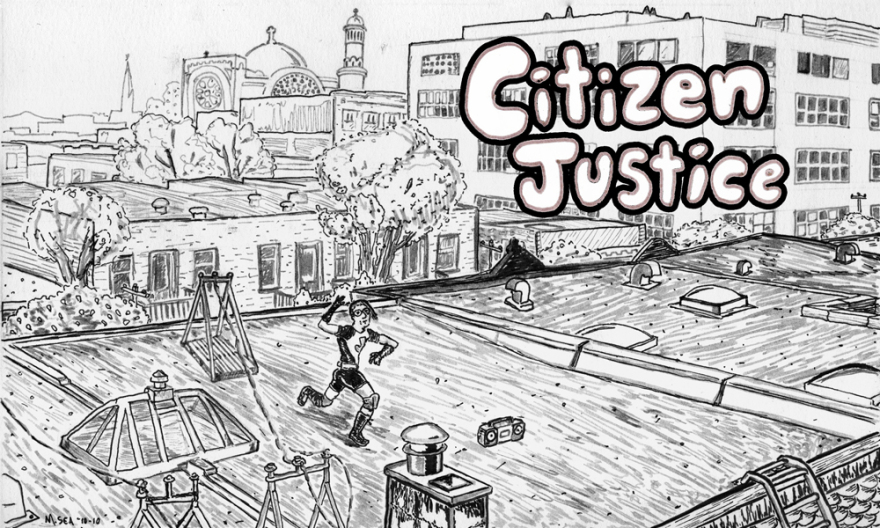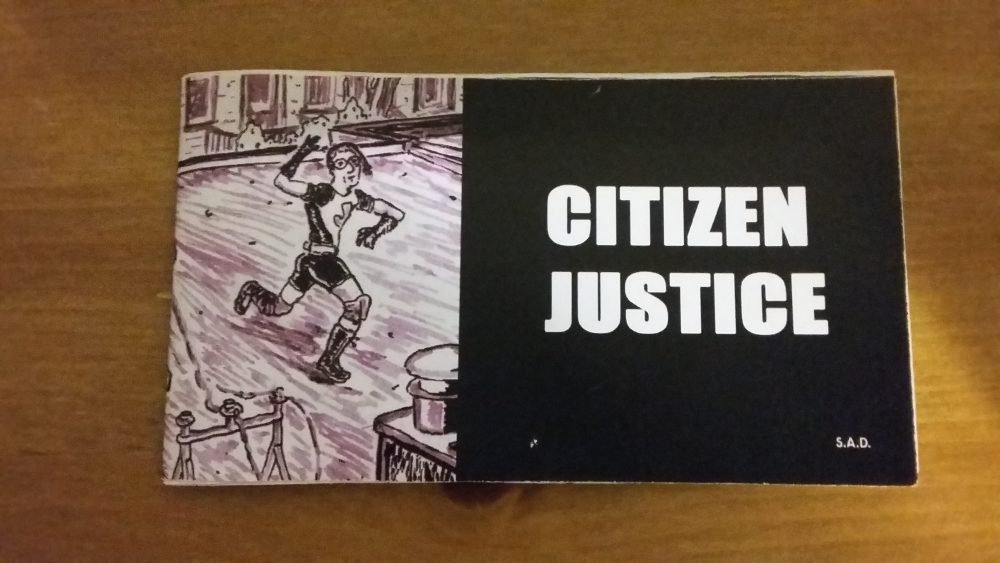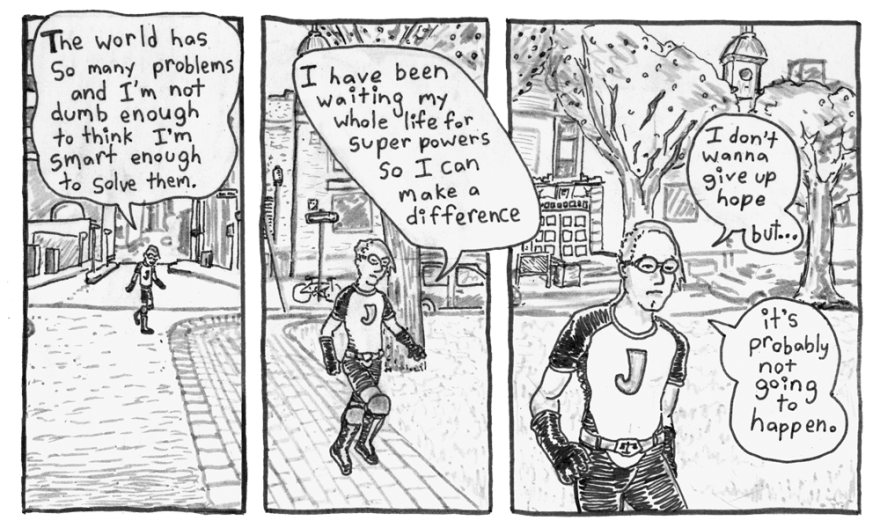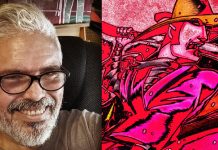I’m never a big fan of the comics that pretends to “explore superheroes if they existed in the real world”. I tend to find those comics to be bland and unimaginative and they typically fall into the same tropes as each story has to have a hero, an origin story, a villain, punching, more punching. It doesn’t cover a lot of new ground. My expectations were quite low when I picked up Morgan Sea’s Citizen Justice since it is a superhero deconstruction “in the real world”. I was surprised to find an incredibly funny dark comedy that touches on the mundane banality of life and the difficulty of effecting changes in our modern world.
What Morgan Sea explores in Citizen Justice is a dark and gloomy look at an ordinary person who just wants to do some good in the world. The role models that that person took are completely at odds with the realities of the world she inhabits. Citizen Justice opens a newspaper only to realize that there is ample cause for despair, that the magnitude of the issues to fix to make the world a better place are enormous and that the bad outweighs the good by such a degree, it’s almost pointless to try to tip the balance back towards good. The underlying argument made by this passage is also that becoming a real-life superhero probably wouldn’t amount to much anyhow. This macro view of how messed up the world is also collides with the mundanity of everyday life in modern day Montreal. We have a an average person who aims to do extraordinary things, to do some good in a dark and evil world, while finding not much wrong in it’s immediate proximity. In fact, when Citizen Justice tries to fix a problem, finding a lost cat, it becomes a depressing dead end. It’s an interesting approach, one that takes the superhero concept in that there is real life evil to be stop, only to be confronted with the realities of a complex world that isn’t made for black & white answers. It’s a perfect comic for the cynic in me. Morgan Sea posits that if there were superheroes in the real world, they’d be nobody of importance in the grand scheme of things. In spite of the cynicism of this comic, Sea finishes her comic with an uplifting appeal for the reader. She encourages the reader to find their calling and to follow it “to your satisfaction or your doom”.
There is deliberate consideration given to the location in which story of Citizen Justice takes place. Montreal features prominently in the background details of the comic. Particularly striking is a small moment when Citizen Justice is losing faith in humanity and is sitting in a park. We can see the iconic oversized cross overlooking the Mont-Royal in the distance. There’s also what looks like the Saint-Joseph oratory in a few panels (though I’m not entirely sure if it is or if it’s another one of Montreal religious building I may be placing wrong). Placing the action of this comic in Montreal is interesting in that Montreal in itself has a lot of problems that are apparent for anyone paying attention to the media. There’s major crumbling infrastructure, law enforcement overreach and the past few years provided for lots of details on the massive corruption and collusion in the construction industry, leading to public inquiry and imprisonment of major Montreal political figures. Placing the action of the comic here is an interesting choice in that there are real issues in the city, but not particularly anything that can be simply solved with a “do-gooder” attitude.
The version I have is a second printing, with a new cover made to look like a Chick Tract comic. It’s interesting for a few reasons, first of which is the content of the book. It’s a story of a person trying to do the right thing in the face of adversity. It advocates for the readers to do good deeds, to find their place in the world. It’s a positive message being sent by someone whose views may be cynical, but still encourages people to essentially be better to each other. Using the aesthetic of a Chick Tract for this story is a nice subversion of these hateful messages to create something more hopeful. There’s also the fact that the Chick Tract were notoriously anti-Catholic and the action of this comic takes place in Montreal. Both the city of Montreal and the province of Quebec in general, are overwhelmingly Catholic. Another interesting thing to highlight is that Morgan Sea is a trans artist, something that would probably send her straight to Hell in the writing of Jack Chick. Recontextualizing this makes for an interesting reading of the comic.
The back cover ends with yet another hopeful message, encouraging the reader to make a donation of $12.95 to the charity of their choice. Go help out the world, it could really use all the help it can get right now.











